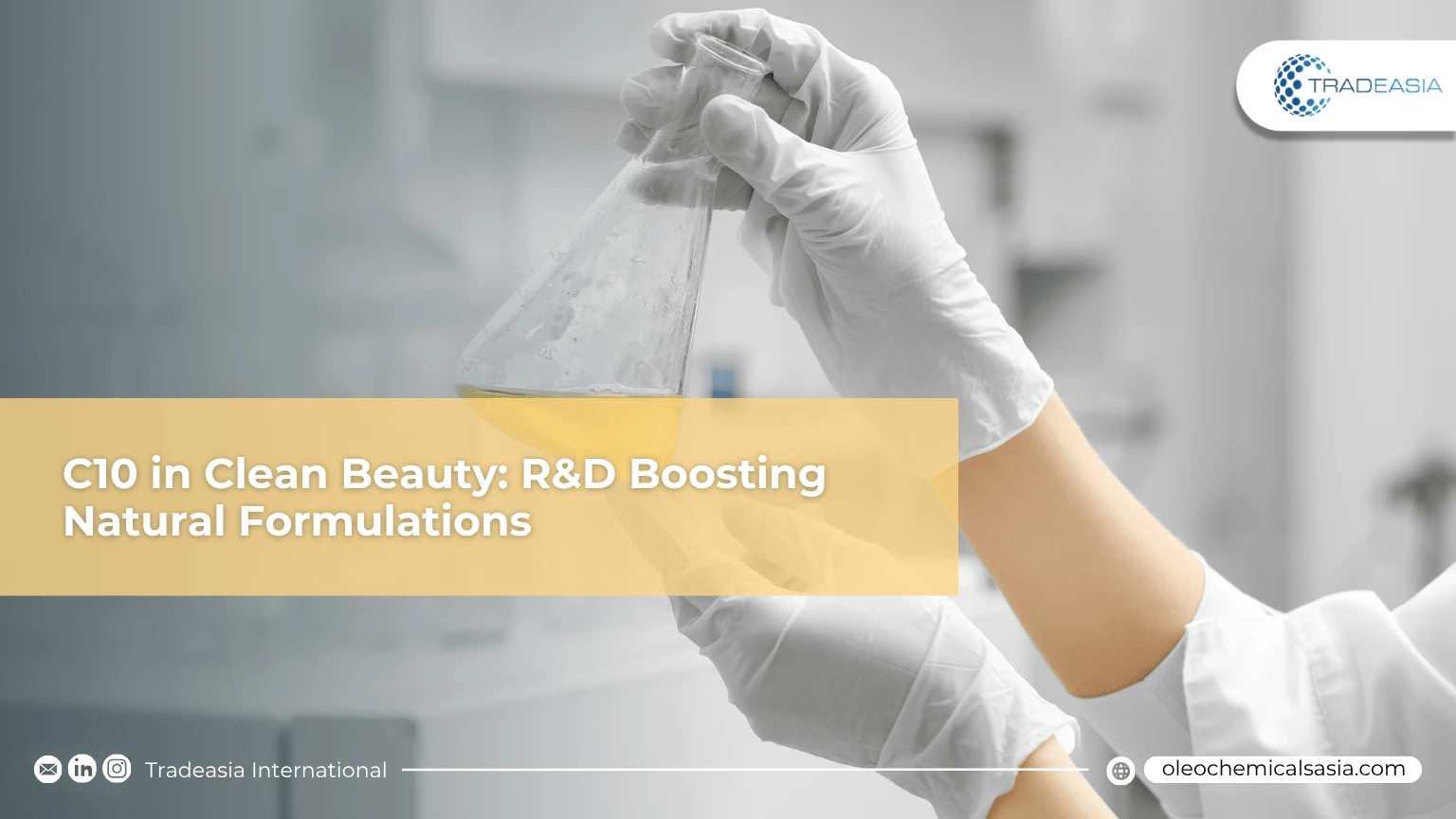C10 in 'Clean Beauty': R&D Accelerating Decyl Alcohol's Role in High-Efficacy, Natural Formulations

Table of Content
- R&D for Emollient and Emulsifier Superiority
- Functional Innovation Driving the Natural Surfactant Market
The Cosmetics and Personal Care industry is currently undergoing a transformative period, driven by the consumer-led "Clean Beauty" movement. This shift demands ingredients that are not only bio-sourced and sustainable but also offer uncompromising performance. Decyl Alcohol (1-Decanol), a plant-derived C10 fatty alcohol, is perfectly positioned at this intersection. The market’s recognition of 1-Decanol’s utility is clear, with the sector contributing heavily to the product's overall projected CAGR of 9.8% over the next five years. This sustained growth signals a premium placed on reliable, naturally-derived functional ingredients.
As we navigate the specialized waters of oleochemical supply, the ability to trace and guarantee the quality of every derivative is paramount. In this complex global trade, seamless logistics and transparent sourcing are non-negotiable. "The ultimate expression of sustainability is a fully traceable supply chain." This unwavering focus ensures that every drop of palm-based C10 is produced and delivered with integrity, empowering 'clean beauty' brands to meet their ethical and performance promises to consumers worldwide.
R&D for Emollient and Emulsifier Superiority
Current R&D efforts are focused on unlocking the full potential of C10 in cosmetic formulations. Decyl Alcohol is widely used as a foundational emollient and solubilizing agent, with R&D concentrating on optimizing its ester derivatives, such as Decyl Cocoate. This optimization is crucial for creating products with the desired sensory profile—specifically, light, non-greasy textures that absorb quickly. Furthermore, researchers are actively studying the synergistic effects of C10 esters when formulated with cutting-edge natural actives like Bakuchiol, a plant-derived retinol alternative. This research guarantees that Decyl Alcohol derivatives enhance the stability and delivery of these high-value compounds, translating directly into superior product efficacy and consumer appeal.
Functional Innovation Driving the Natural Surfactant Market
Beyond emollients, R&D is heavily invested in improving C10-based surfactants, notably Decyl Glucoside, a non-ionic surfactant popular in low-irritation products. Advanced studies into the structure-function relationship of C10-based Alkyl Polyglucosides have led to formulations that demonstrate a significantly lower Zein value, a key metric indicating a gentler effect on the skin. This functional innovation is vital for developing high-performance shampoos, body washes, and cleansers that satisfy the demand for 'mild but effective' products. The sustained demand for safe, natural emollients and emulsifiers derived from palm oil is a consistent growth engine, ensuring that C10 remains an indispensable core ingredient in the >40 billion dollar global surfactant market.
Sources:
-
Frontiers - Biosynthesis of Fatty Alcohols in Engineered Microbial Cell Factories: Advances and Limitations (https://www.frontiersin.org/journals/bioengineering-and-biotechnology/articles/10.3389/fbioe.2020.610936/full)
-
Palm-Chemicals.com - The Critical Role of Palm Derivatives in High-Performance Emollients and Personal Care (https://www.palm-chemicals.com/personal-care-emollients)
-
Precision Business Insights - 1-Decanol Market Size, Share Analysis 2031 (https://www.precisionbusinessinsights.com/market-reports/1-decanol-market)

Leave a Comment